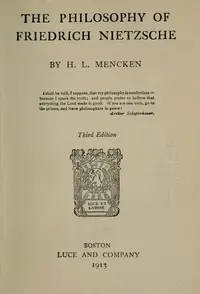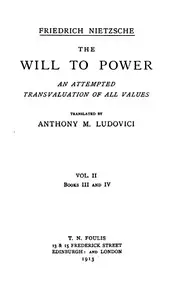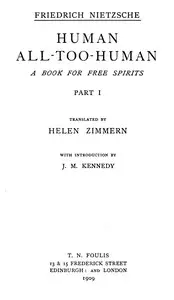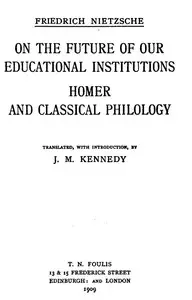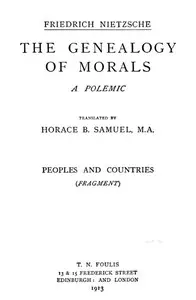"The Will to Power: An Attempted Transvaluation of All Values. Book I and II" by Friedrich Nietzsche is a deep dive into philosophy from the late 1800s that talks about nihilism, or the downfall of what people used to believe in, and why it's important to rethink values to make life more fulfilling. Nietzsche's main thought is that the "Will to Power" is the main push for everything alive, and that when beliefs in religion and morals fade, people feel lost. The book begins by introducing nihilism as a big issue, suggesting people are close to accepting it because old values don't seem true anymore. He argues that old ways of thinking about right and wrong and religion have made this crisis worse. He thinks that to get over nihilism, people need new ideas based on the Will to Power, pushing for people to see the power in life and come up with new values that support living.
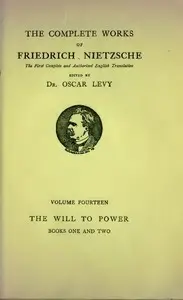
The Will to Power: An Attempted Transvaluation of All Values. Book I and II
By Friedrich Wilhelm Nietzsche
As old beliefs crumble, a philosopher urges a brave new world, powered by the will to live, where strength and self-affirmation create new guiding truths.
Summary
About the AuthorFriedrich Wilhelm Nietzsche was a German classical scholar, philosopher, and critic of culture, who became one of the most influential of all modern thinkers. He began his career as a classical philologist before turning to philosophy. He became the youngest person to hold the Chair of Classical Philology at the University of Basel in Switzerland in 1869, at the age of 24, but resigned in 1879 due to health problems that plagued him most of his life; he completed much of his core writing in the following decade. In 1889, at age 44, he suffered a collapse and afterward a complete loss of his mental faculties, with paralysis and probably vascular dementia. He lived his remaining years in the care of his mother until her death in 1897, and then with his sister Elisabeth Förster-Nietzsche. Nietzsche died in 1900, after experiencing pneumonia and multiple strokes.
Friedrich Wilhelm Nietzsche was a German classical scholar, philosopher, and critic of culture, who became one of the most influential of all modern thinkers. He began his career as a classical philologist before turning to philosophy. He became the youngest person to hold the Chair of Classical Philology at the University of Basel in Switzerland in 1869, at the age of 24, but resigned in 1879 due to health problems that plagued him most of his life; he completed much of his core writing in the following decade. In 1889, at age 44, he suffered a collapse and afterward a complete loss of his mental faculties, with paralysis and probably vascular dementia. He lived his remaining years in the care of his mother until her death in 1897, and then with his sister Elisabeth Förster-Nietzsche. Nietzsche died in 1900, after experiencing pneumonia and multiple strokes.


